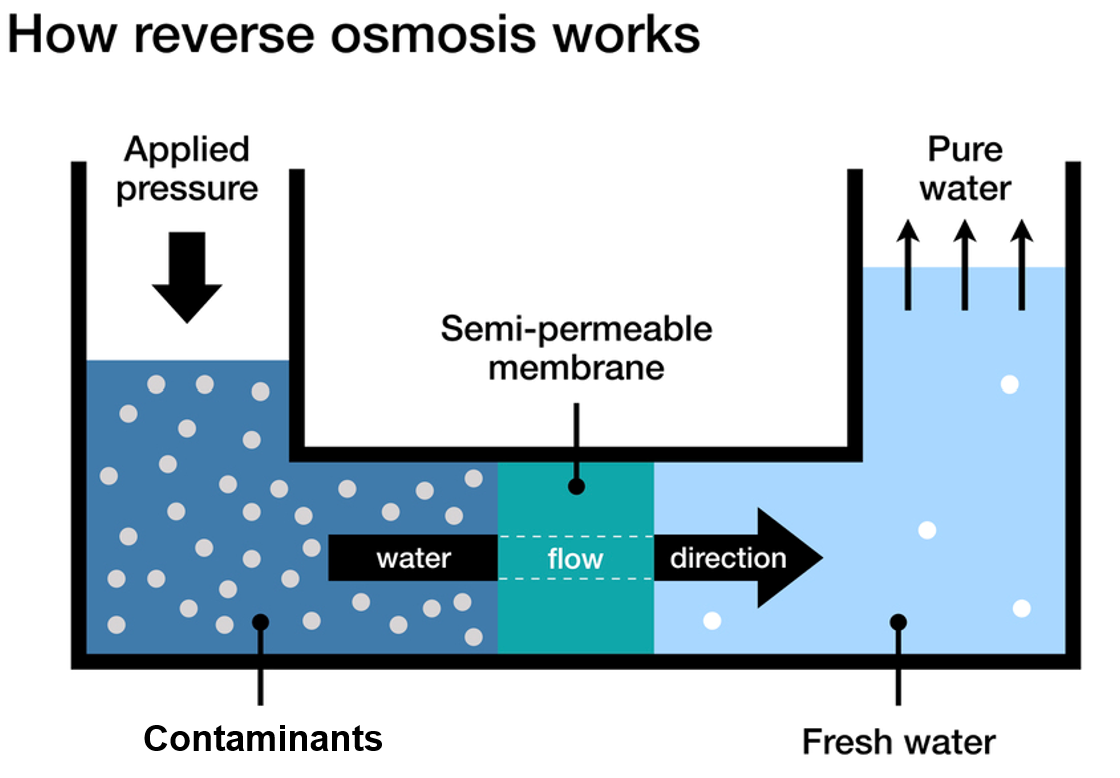Are Reverse Osmosis systems worth the money?

Many newer homes come with reverse osmosis systems simply because Phoenix water is hard and people don’t always like the taste of it. Only you can determine if it’s worth installing a reverse osmosis system.
Give us a call and we’ll talk about your water priorities, budget, and how we can help.
-
Can reverse osmosis provide safer water for my family?
-
Could reverse osmosis improve the taste and smell of our water?
The short answer is yes, reverse osmosis can improve the safety, taste, and odor of your water. If those qualities are important to you, then yes, installing a reverse osmosis system is worth the money.
The long answer is that we want to match up your water quality goals and budget with the best water treatment solution possible. Read on to learn more about reverse osmosis systems.
Or, just give us call and we’ll get your Phoenix water quality needs addressed. We’re Certified Water Specialists and Certified Water Installers so you know you’re in good hands.
How does a reverse osmosis system work?
A reverse osmosis (RO) system filters water by using pressure to force water molecules through a semipermeable membrane. This leaves behind the contaminants and impurities, as well as most of the salts and other dissolved solids.

What's IN my Phoenix water?
Reverse osmosis (RO) is a type of filtration that removes contaminants from water by using pressure to push the water through a semipermeable, thin membrane with pores small enough to pass pure water through while rejecting larger molecules such as dissolved salts (ions) and other impurities such as bacteria.
Think about it. During and after you exercise, you replenish yourself with water. But what’s IN that water? That water is also in your coffee, tea, and other beverages. Let’s get you cleaner, safer water that has several other benefits as well.
4-Stage versus 3-Stage Reverse Osmosis Systems
A 4-stage reverse osmosis (RO) system offers more filtration than a 3-stage RO system. It does this by adding a post-filtration stage, often a carbon filter or remineralization filter, to polish the water after the RO membrane.
3-Stage RO Systems
Filtration: Typcially includes a carbon block pre-filter, a carbon block post-filter, and reverse osmosis membrane.
Carbon Filter: Removes chlorine, chloramines, and some other contaminants, improving taste and odor.
RO Membrane: Filters out dissolved solids, heavy metals, and other contaminants.
4-Stage RO Systems
Filtration: Include a sediment filter, a carbon filter, a reverse osmosis membrane, and a post-filter.
Sediment Filter: Removes dirt, rust, and other large particles.
Carbon Filter: Removes chlorine, chloramines, and some other contaminants, improving taste and odor.
RO Membrane: Filters out dissolved solids, heavy metals, and other contaminants.
Post-Filter: This final stage can be either a carbon filter, which further polishes the water, removing any remaining taste or odor. The post-filter could also be a remineralization filter, which adds back beneficial minerals removed by the RO membrane.
How do I decide between a 3-stage RO versus a 4-stage RO system?
Give us a call and we’ll discuss your specific needs and wants and provide you with a recommendation that meets your budget needs.
How can Water Treatment Technologies help?
Water Treatment Technologies sells and rents reverse osmosis systems that are designed for your water application, whether you are on city water or well water. We understand that purchasing the right reverse osmosis system for your budget is important to you. Give us a call and we’ll talk through your specific needs.
We service all residential and commercial reverse osmosis systems.
